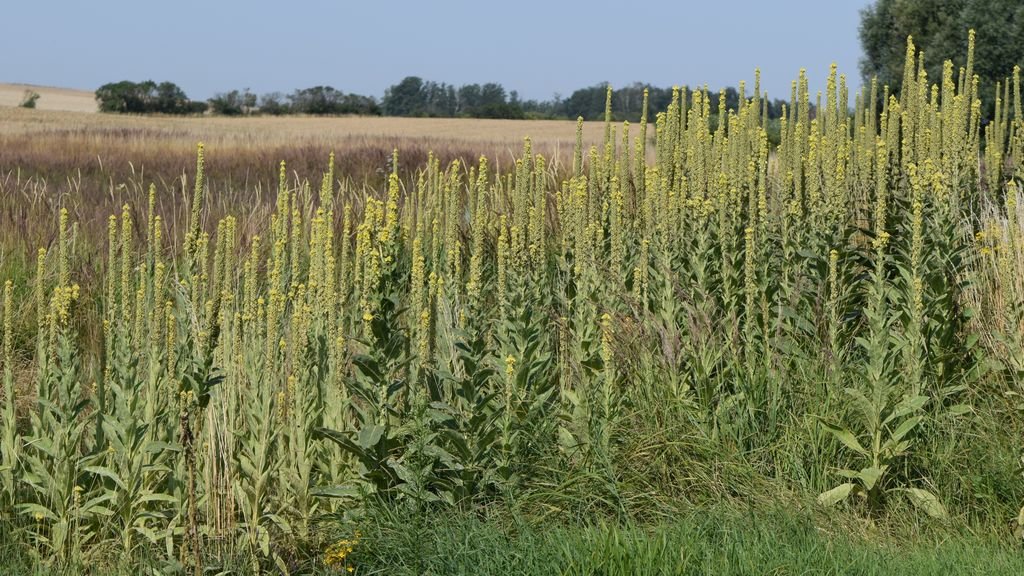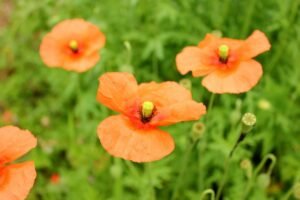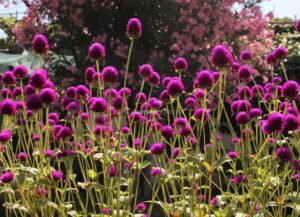Great mullein (Verbascum thapsus) is a plant in the annuals and biennials category that can grow 1.5m – 3m tall and 10cm – 50cm wide. In this growing guide we’ll learn the cultivation details and how to plant Great mullein (Verbascum thapsus).
This plant has several common names including: great mullein, Aaron’s rod, Adam’s flannel, ag leaf, beggar’s blanket, blanket leaf, bullock’s lungwort, candlewick, clown’s lungwort, common mullein, cow’s lungwort, duffle, felt, feltwort, flannel, flannel leaf, flannel plant, fluffweed, hag taper, hag’s taper, hare’s beard, hedge taper, high taper, Jacob’s staff, Jupiter’s staff, king’s taper, lady’s candles, lady’s foxglove, lamb’s wool, light of the Lord, lucernaria, mullein dock, old man’s flannel, rag paper, shepherd’s club, torch lily, torches, velvet dock, velvet leaf, velvet plant, white mullein, woollens or woundweed.
This is a deciduous plant that takes 1-2 years to reach full maturity.
In this article
Plant profile
Common name: great mullein, Aaron’s rod, Adam’s flannel, ag leaf, beggar’s blanket, blanket leaf, bullock’s lungwort, candlewick, clown’s lungwort, common mullein, cow’s lungwort, duffle, felt, feltwort, flannel, flannel leaf, flannel plant, fluffweed, hag taper, hag’s taper, hare’s beard, hedge taper, high taper, Jacob’s staff, Jupiter’s staff, king’s taper, lady’s candles, lady’s foxglove, lamb’s wool, light of the Lord, lucernaria, mullein dock, old man’s flannel, rag paper, shepherd’s club, torch lily, torches, velvet dock, velvet leaf, velvet plant, white mullein, woollens, woundweed
Scientific name: Verbascum thapsus
Plant type: Annual / Biennial
Habit: Columnar / Upright
Height: 1.5m – 3m
Spread: 10cm – 50cm
Foliage: Deciduous
Sunlight: Full Sun
Soil: Chalk, Loam, Sand
Moisture: Well drained
Garden type: Informal Garden, Wildflower meadow, Wildlife Gardens
Planting type: Flower borders and bedding, Low Maintenance
Other characteristics: Plants for pollinators
Seasonal colors
| Season | Stem | Foliage | Flower | Fruit |
|---|---|---|---|---|
| Spring | ||||
| Summer | ||||
| Autumn | ||||
| Winter |
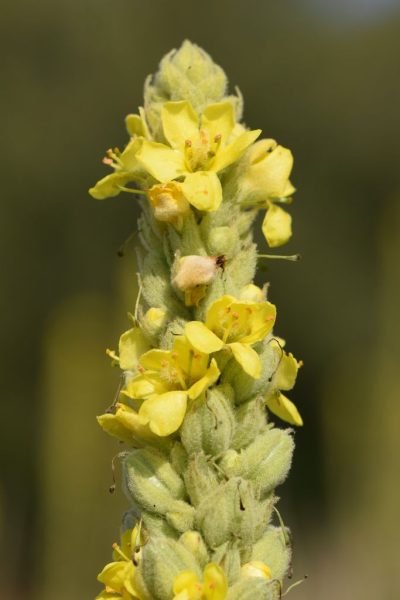
How to plant Great mullein (Verbascum thapsus) – Krzysztof Ziarnek, Kenraiz, CC BY-SA 4.0, via Wikimedia Commons
Annuals and biennials are ideal for formal or informal flower beds, but also for growing in pots and containers of all kinds. They are important plants for their rapid growth, instant color and relatively low cost.
They are also useful plants for filling spaces between newly planted trees and shrubs, as well as in perennial beds that may need to be revived after the first spring bloom.
They are an important ingredient in country house gardens and wildflower meadows.
How to plant
In this section we will learn how to plant Great mullein (Verbascum thapsus), know its needs in terms of soil, watering and sun exposure.
Soil
Great mullein (Verbascum thapsus) is not a demanding plant regarding the type of soil and can grow in chalk, loam or sand.
-
The chalky soil is pale and contains chunks of calcium-rich rock. It is a fertile and well-draining soil, almost always alkaline.
-
The loam soil is dark, rich in organic matter but balanced in minerals. It offers the best of all worlds, retaining enough water for the plants, but allowing excess moisture to drain away. This is the most desired type of garden soil, perfect for most plants.
-
Sandy soil is light, porous and very easy to drain. It is a soil poor in organic matter and nutrients. It is composed of relatively large mineral particles that allow water to drain quickly.
As for pH, it is a plant that grows ideally in soils with pH alkaline pH.
Regarding drainage, Verbascum thapsus likes to grow in well drained soil.
Sunlight
Great mullein (Verbascum thapsus) should be grown in full sun places.
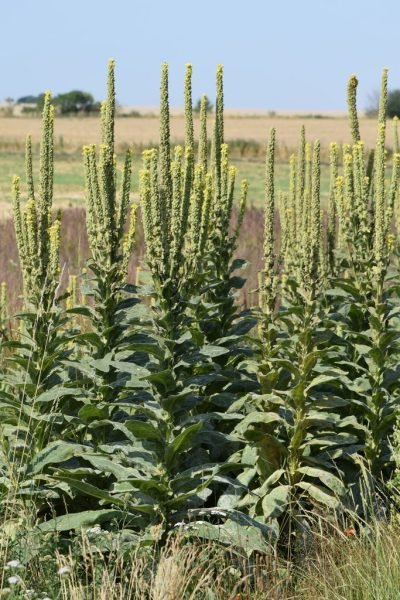
Cultivation profiles – Growing Great mullein (Verbascum thapsus) – Krzysztof Ziarnek, Kenraiz, CC BY-SA 4.0, via Wikimedia Commons
